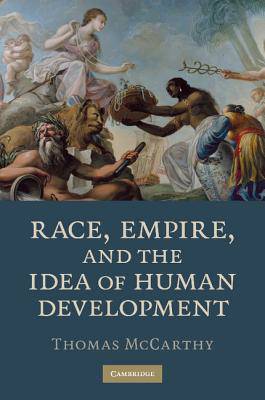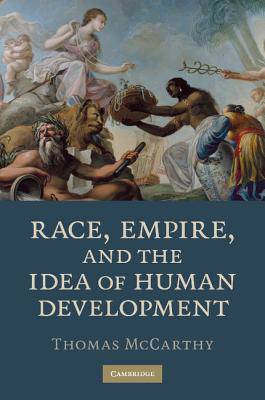
Je cadeautjes zeker op tijd in huis hebben voor de feestdagen? Kom langs in onze winkels en vind het perfecte geschenk!
- Afhalen na 1 uur in een winkel met voorraad
- Gratis thuislevering in België vanaf € 30
- Ruim aanbod met 7 miljoen producten
Je cadeautjes zeker op tijd in huis hebben voor de feestdagen? Kom langs in onze winkels en vind het perfecte geschenk!
- Afhalen na 1 uur in een winkel met voorraad
- Gratis thuislevering in België vanaf € 30
- Ruim aanbod met 7 miljoen producten
Zoeken
€ 46,45
+ 92 punten
Uitvoering
Omschrijving
In an exciting new study of ideas accompanying the rise of the West, Thomas McCarthy analyzes the ideologies of race and empire that were integral to European-American expansion. He highlights the central role that conceptions of human development (civilization, progress, modernization, and the like) played in answering challenges to legitimacy through a hierarchical ordering of difference. Focusing on Kant and natural history in the eighteenth century, Mill and social Darwinism in the nineteenth, and theories of development and modernization in the twentieth, he proposes a critical theory of development which can counter contemporary neoracism and neoimperialism, and can accommodate the multiple modernities now taking shape. Offering an unusual perspective on the past and present of our globalizing world, this book will appeal to scholars and advanced students of philosophy, political theory, the history of ideas, racial and ethnic studies, social theory, and cultural studies.
Specificaties
Betrokkenen
- Auteur(s):
- Uitgeverij:
Inhoud
- Aantal bladzijden:
- 264
- Taal:
- Engels
Eigenschappen
- Productcode (EAN):
- 9780521740432
- Verschijningsdatum:
- 16/07/2009
- Uitvoering:
- Paperback
- Formaat:
- Trade paperback (VS)
- Afmetingen:
- 150 mm x 226 mm
- Gewicht:
- 430 g

Alleen bij Standaard Boekhandel
+ 92 punten op je klantenkaart van Standaard Boekhandel
Beoordelingen
We publiceren alleen reviews die voldoen aan de voorwaarden voor reviews. Bekijk onze voorwaarden voor reviews.









